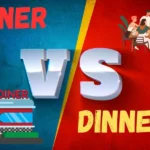When it comes to spelling, even the smallest details can make a big difference.
This article dives deep into the confusion between “4th” and “4rth,” explaining why only one is correct and how to avoid common mistakes.
The correct spelling is “4th,” not “4rth,” as the suffix “-th” is standard for ordinal numbers starting from four.
If you’ve ever hesitated over these terms, you’re not alone—but by the end of this guide, you’ll have a clear understanding.
What Does “4th” Mean?
The term 4th is an ordinal number that signifies position or order in a sequence. Specifically, it represents the position that comes after third and before fifth. Ordinal numbers like 4th are used to indicate rank, placement, or sequence in various contexts, such as dates, competitions, and academic grades.
How “4th” Is Formed
- Base word: The number four.
- Suffix: The addition of -th to create fourth, following the standard rule for ordinal numbers starting from 4 onward.
Examples of “4th” in Use
- The 4th of July is a major national holiday in the United States, commemorating the country’s independence.
- She placed 4th in the finals, narrowly missing a podium finish.
- My son started 4th grade this year, marking an exciting milestone in his education.
Fun Fact About Ordinals
The first three ordinal numbers (first, second, and third) break the pattern by using unique forms. From fourth onward, the suffix -th is consistently applied, making “4th” a regular ordinal number in English.
Why “4rth” Is Incorrect
Despite its frequent appearance in informal contexts, 4rth is grammatically incorrect. Here’s why:
- Misplacement of “r”:
- The r in “fourth” belongs to the root word four, not the ordinal suffix.
- Adding an r to the suffix creates redundancy and violates grammatical rules.
- Inconsistent Suffix Rules:
- English ordinal numbers use specific suffixes: -th, -st, -nd, or -rd.
- -rth is not a valid suffix in this system.
- Root Word Integrity:
- Ordinal numbers are derived by adding a suffix to the cardinal number without altering the base spelling.
- For example:
- Four becomes fourth, abbreviated as 4th.
- Five becomes fifth, abbreviated as 5th.
Common Misconceptions About “4rth”
Some people mistakenly believe that the r in “fourth” should appear in the abbreviation. This misunderstanding often leads to errors like 4rth. However, this logic does not align with the rules of English grammar or standard abbreviation practices.
Collocations with “4th”
The word 4th is frequently used in various contexts. Below are some of the most common collocations, along with examples to illustrate their meaning.
Examples of Common Collocations
- 4th quarter:
- The game was tied heading into the 4th quarter, but the home team clinched victory in the final minutes.
- 4th grade:
- In 4th grade, students often transition to more advanced subjects like science and history.
- 4th place:
- Despite a strong effort, she finished 4th, missing a medal by a fraction of a second.
Cultural Significance: The 4th of July
The 4th of July holds special importance in the United States as Independence Day. It commemorates the adoption of the Declaration of Independence in 1776. Festivities typically include:
- Fireworks
- Parades
- Family gatherings
- Patriotic displays
Ordinal Suffixes: A Quick Reference
English ordinal numbers use specific suffixes based on their ending digits. Here’s a helpful table to clarify:
| Cardinal Number | Ordinal Number | Suffix | Example |
|---|---|---|---|
| 1 | 1st | -st | 1st prize (first) |
| 2 | 2nd | -nd | 2nd chance (second) |
| 3 | 3rd | -rd | 3rd attempt (third) |
| 4 | 4th | -th | 4th of July (fourth) |
Key Takeaways
- Suffix consistency: Numbers ending in 1, 2, or 3 have unique suffixes (-st, -nd, -rd), while -th applies to most others.
- Avoid redundant letters: Never add r to the suffix, as in 4rth.
Common Errors with Ordinals
Let’s address some of the most frequent mistakes when writing ordinal numbers.
Examples of Incorrect Forms
- 4rth: The extra r makes this form invalid.
- 4nd: Confuses the suffix for second (-nd) with that for fourth (-th).
- 4rd: Misuses the suffix meant for third.
- 4st: Incorrectly applies the suffix for first.
How to Avoid These Errors
- Memorize the Suffix Rules:
- Numbers ending in 1 = -st (e.g., 21st).
- Numbers ending in 2 = -nd (e.g., 32nd).
- Numbers ending in 3 = -rd (e.g., 43rd).
- All others = -th (e.g., 4th, 11th, 20th).
- Double-Check Spelling:
- Always review your writing for consistency in ordinal suffix usage.
- Practice Makes Perfect:
- Use ordinals in sentences to reinforce proper usage.
Why Spelling Matters
Attention to detail is crucial in both formal and informal writing. Using correct spellings like 4th instead of 4rth ensures clarity and professionalism.
The Impact of Errors
- Credibility: Incorrect spellings can undermine your credibility, especially in academic or professional contexts.
- Search Relevance: Mistyped ordinals like 4rth may yield irrelevant or incorrect search results online.
A Tip for Writers
If you’re unsure about ordinal suffixes, remember: the suffix -th applies to all numbers starting from 4 (except for special cases like 11th, 12th, and 13th).
FAQs About “4th” and “4rth”
Q: Is “4rth” ever acceptable in informal writing?
A: No, “4rth” is always considered incorrect. Stick with “4th” for clarity and accuracy.
Q: Why don’t 1st, 2nd, and 3rd follow the same rule as “4th”?
A: The irregular forms (first, second, and third) have historical linguistic origins. From “fourth” onward, the pattern becomes regular.
Q: How can I remember ordinal suffixes easily?
A: Associate the suffix -th with numbers starting from 4, except when they end in 1, 2, or 3 (with exceptions for 11th, 12th, and 13th).
Conclusion
The debate between “4th” and “4rth” is simple to resolve when you understand the rules. 4th is the correct spelling, representing the ordinal form of the number four.
Meanwhile, 4rth is always a mistake, as it incorrectly modifies the standard suffix.
By mastering these details, you’ll not only write more accurately but also convey professionalism and attention to detail.
Whether you’re marking the 4th of July or celebrating a 4th-place finish, you now know how to spell it right every time.

As an experienced English teacher, I’m Jessica Thompson, here to make grammar and vocabulary simple and fun. Join me on TalkSpeaker as we explore the language together, one lesson at a time!



